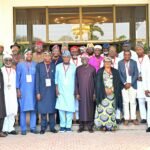Nigeria’s economy has been characterized by rent-seeking activities, which refer to the pursuit of wealth by seeking economic rents, rather than by creating new wealth or engaging in productive activities. Rent-seeking activities in Nigeria have been fueled by corruption, weak institutions, and a lack of transparency and accountability.
One major form of rent-seeking in Nigeria is the exploitation of the country’s natural resources, particularly its oil wealth. This has led to the emergence of powerful rent-seeking elites who control access to oil revenues and use their influence to extract rents from the economy, rather than investing in productive activities.
Another form of rent-seeking in Nigeria is the use of political power to gain access to public resources and contracts. Political elites use their positions to allocate contracts and resources to their cronies and supporters, rather than to the most efficient and productive firms or individuals. This has resulted in a situation where the Nigerian economy is dominated by a few rent-seeking elites, who control access to resources and use their power to stifle competition and innovation.
The rent-seeking economy in Nigeria has contributed to a situation where economic growth has been slow and uneven, and where poverty and inequality remain high. Addressing rent-seeking activities in Nigeria will require a concerted effort to strengthen institutions, reduce corruption, and promote transparency and accountability in the allocation of resources and contracts. It will also require a shift towards a more diversified and productive economy, with greater emphasis on innovation and entrepreneurship.
The rent seeking mindset has damaged the prospects for economic growth, bureaucratic red tape and sundry issues has degraded wealth. About 50 years ago Nigeria’s budget was about 25 billion dollars, today it remains the same. Billionaires from rent increases while the business climate and real employment decreases, today unemployment is pegged over 40%.
Recently, I took a cursory look and discovered that Nigeria has lost over 10,000 real businesses in the last 20 years, at a point Dunlop and Micheline had factories that collectively employed close to 100.000 Nigerians but today because of the insidious rent seeking it’s all ended.
I recently spoke to a friend in the oil and gas sector and he stated how the rent seeking of NNPC is destroying growth prospect in the sector. In fact many joint agreements with NestOil that ought to yield returns for Nigeria is now taken over by legal battles.
Another case is that of Conoil,
The OML 86 and 88 acquisition is an interesting one , and to some extent shows the negatively disruptive impact of NPDC/ NNPC… Conoil worked on this deal to the best of my knowledge, almost about the closing NNPC stepped in exercised the preemption right as Government… I had a chat with one of the yesterday abs since they took it over it has not made any progress . It has a lot of Gas as well , possibly Conoil would have been able to raise the required funds to move it forward by now almost 2 years lost …
May be the press should invite an NNPC executive to show the country what value they have created for the country by making this decision . And comparing it to what the private company (GLO and the Nitel) to what Conoil a private company would have done if they were on the side / NNPC still a partner but not an operator- holding Conoil to deliver to the country ( as co owners ) on any promise they made during the deal .
I keep getting messages like this and I am shell-shocked at how corrupt practices and rent seeking has dwindled our prospect. I ask when are we going to stop and build a real economy?







